When Donna Howard’s 18-year-old son was shot to death more than a year and a half ago, she didn’t know where to turn for support.
“We were exhausted, crying and speaking on Facebook,” says Howard.
Her son Delvonta Porter was killed Oct. 24, 2011, in the South Shore neighborhood, just blocks from home.

Howard found solace in talking with the parents of other murder victims, so she decided to form virtual support groups – Mothers of murdered children in Chicago take a stand and Death Penalty for Murders in Chicago – for people like her. Howard also grieves her son through video posts on her YouTube account DONNA SHARE.
“No one in my family had ever been murdered before,” Howard says. “That’s why I made the page. Whenever I turned around, each of my friends were burying their kids.”
Howard’s son’s case remains unsolved, like most of her friends’ cases – and that’s often a topic of discussion among members of the virtual support groups.
“I am at a place I never wanted to be in my life,” she says. “I have no one to vent to except my family.”
She’s especially upset that her son’s case has gone cold. That uncertainty only adds to the stress of losing a loved one in such a sudden, violent way, say Howard and other advocates.
Jennifer Bishop-Jenkins also knows the pain of losing a family member to homicide.
Since her sister, brother-in-law and their unborn child were murdered more than two decades ago, she’s become an advocate for other victims’ families, serving as director of Marsy’s Law for Illinois and IllinoisVictims.org.
A pregnant Nancy Bishop Langert and her husband Richard were shot to death in Winnetka in 1990 by a high school student just weeks shy of his 17th birthday.
Winnetka police solved the case in just six months, and the killer was sentenced to life in prison.
Unfortunately, some of the Chicago families she works with don’t get that same resolution. Many cases – whether someone’s been convicted or the case remains unsolved – don’t receive the same attention as her sister’s did, says Bishop-Jenkins.
“We came from some money,” she says. “We were treated well and supported well because of our high-profile case.”
Chicago Police Department spokesman Adam Collins says every homicide case is handled the same.
“Every murder is investigated with the same thoroughness and receives the exact same resources,” Collins said in an e-mail. “Some cases do receive additional media attention, but that’s beyond our control.”
One way families regain some control in their lives is to speak out and come together.

Bishop-Jenkins started IllinoisVictims.org, a website to help connect families with one another. It informs families of their rights as cases make their way through the criminal justice system and advocates for victims’ families at the state capitol in Springfield.
“What we found over history is that victims were increasingly marginalized,” Bishop-Jenkins says. “The victims were left out almost entirely. There was no mechanism for keeping them informed.”
Bishop-Jenkins says she thought the state was moving in a positive direction a few years ago.
“When the state of Illinois abolished the death penalty, the bill allocated money for support services for homicide victims’ families,” Bishop-Jenkins says. “That was three years ago. We are hoping something will get off the ground.”
Last month was the deadline for the Illinois Criminal Justice Information Authority to accept proposals from groups hoping to win a grant to offer supportive services to family members of homicide victims. One applicant will be awarded funding.
Bishop-Jenkins says IllinoisVictims.org is one of several organizations which is part of a larger proposal that’s been submitted by Chicago Citizens for Change, another group that works with the loved ones of homicide victims.
“We feel compelled to leap into action to stop this craziness,” Bishop-Jenkins says.
While she declined to share details about the group’s application, she said her husband’s book was included in the proposal.
Bill Jenkins decided to write What to do When the Police Leave: A Guide to the First Days of Traumatic Loss after he couldn’t find any books to help him grieve his son’s murder.
The book provides an 11-step checklist that offers guidance on everything – from how to plan a quick funeral to talking to children. If state officials select Chicago Citizens for Change, Jenkins’ book would be given to every family who loses a loved one to homicide.
“After the police and the pastor leave … at some point they have to go home and your family is left with a murdered person,” Bishop-Jenkins says. “This book helps you deal with that.”
Another way some family members deal with their loved one’s murder is turning to local law-enforcement agencies for help.
Each of the Chicago Police Department’s districts has a court advocacy group designed to provide community support to victims’ families throughout the often-lengthy court process.
Allen Hayduk, who leads the court advocacy program for the 9th District, says the program used to be vigorously supported but has run out of funding.
“It’s kind of falling down a little bit,” Hayduk says. “It used to be run better. We run it ourselves now and don’t get paid. I even pay for my own paper to make flyers.”
Hayduk says he volunteers in the hopes of preventing more violence, and he and other volunteers have had to request help from local churches to buy supplies.
“We aren’t going to just give up,” he says.
And grieving relatives, like Donna Howard won’t give up either.
A few weeks back, the day before Mother’s Day, Howard posted a picture of her and her son, Delvonta, on her Facebook page: “…I’M STILL FIGHTING . . . FOR YOU AND I THINK I’M DOING GOOD SO JUST TO LET YOU KNOW THAT YOU CAN R.I.P . . . LOVE YOUR MOTHER DONNA.”
This story is part of a week-long series about homicides in Chicago. ChicagoTalks, a news outlet operated by Columbia College’s Journalism Department, undertook a semester-long investigation of the topic funded with a grant from The Chicago Community Trust. ChicagoTalks is publishing additional stories throughout the week. If you have questions or comments, please e-mail project editor Suzanne McBride at smcbride@colum.edu.
Read more from this series:
- Argument over basketball game takes parents’ only child
- Family seeks answers after 8th grader’s murder
- Family, friends of murdered Uptown businesswoman say they have been left in the dark
- Killer on the line
- Lonely anniversary
- For some, the grieving never ends
- Families say silence the norm after Chicago homicides
- Homicide victim’s mother sees progress in Englewood
- Giving up on justice
- Unsolved homicide not forgotten
- Final call to a friend


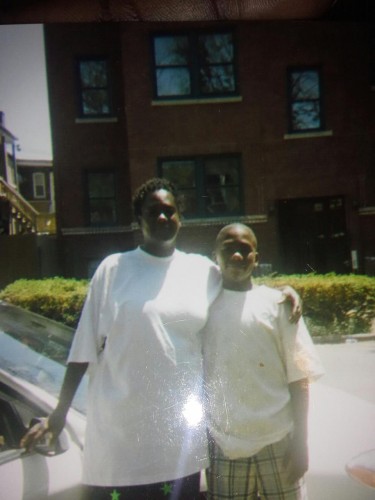

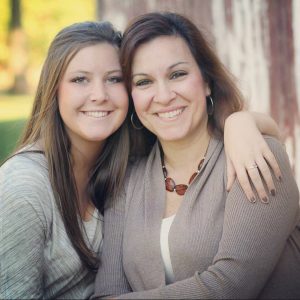
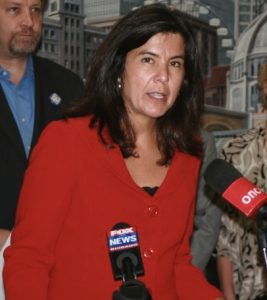







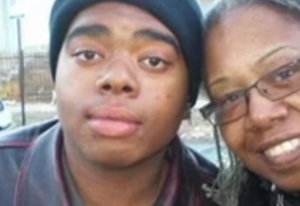
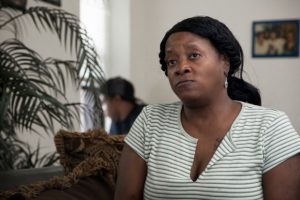
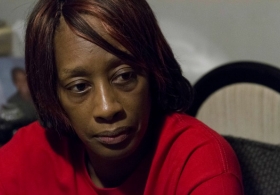


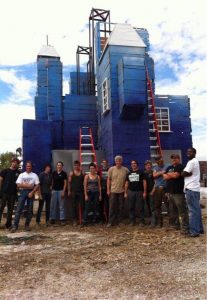

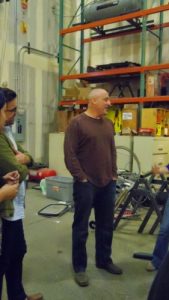
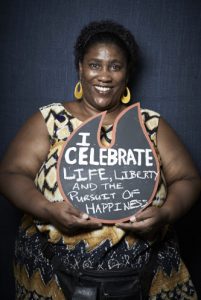

Be First to Comment